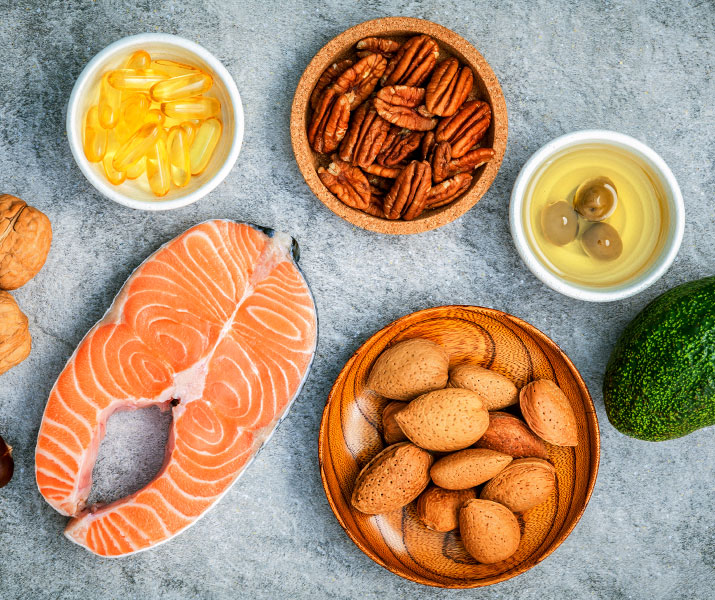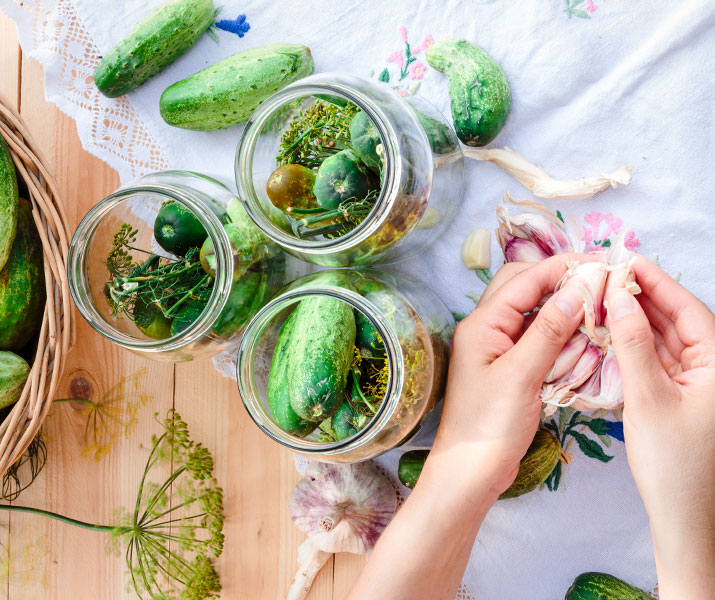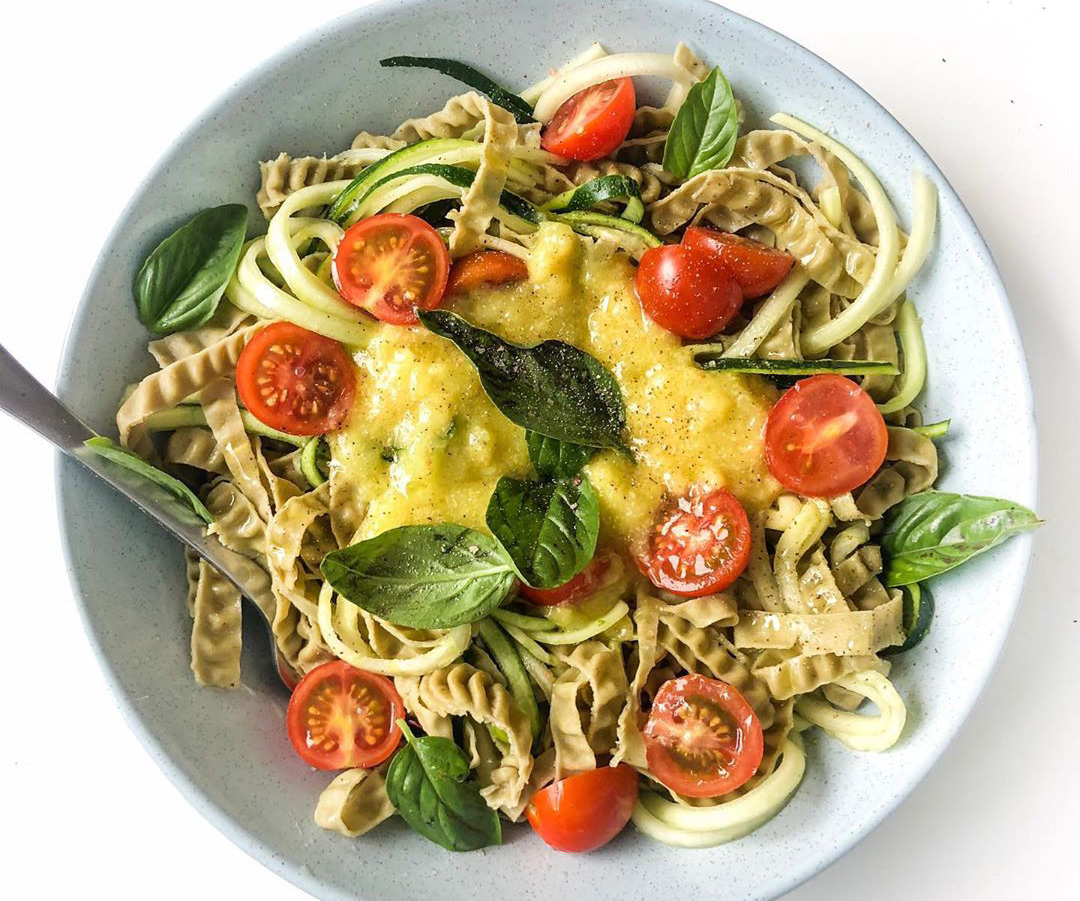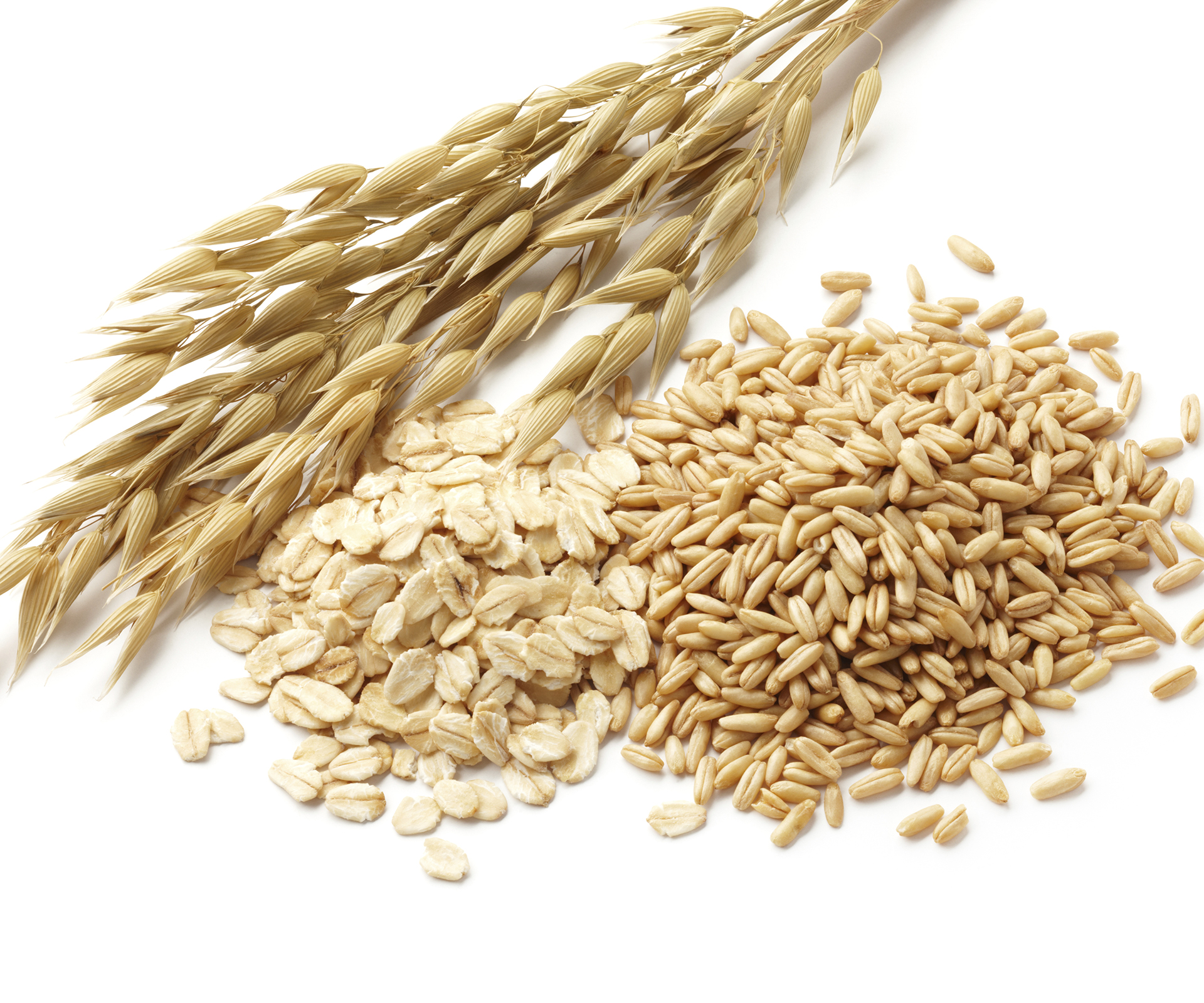If you’ve ever cleaned out your pantry or wardrobe, you’ll know how great it feels.
A general detox has top-to-toe benefits, but we’ve covered eight key areas so you can target any specific concerns one by one.
YOUR MIND
If you feel overwhelmed by day-to-day life, work out what worries and stressors are cluttering up your mind and start setting in place strategies to help reduce your mental load and give your nervous system a chance to recharge.

Taking time for yourself is one of the easiest ways to detox your mind.
(Credit: Getty)YOUR THREE-WEEK ANTI-STRESS TOOLKIT
Those small everyday stressors add up and take their toll.
Finding that regular switch-off time will ease the load on your nervous system, and even if you can’t change your circumstances, you can change your body’s reaction to stress.
The key is to remind your mind and body what it’s like not to be under constant attack by introducing one of these steps each week for three weeks.
Week 1: Get into ‘me time’
The most effective stress-buster is ‘me-time’.
For at least 15 minutes every day, stop doing everything for everyone else, and get a taste of self-care – it’s addictive!
Schedule in some relaxation; read, listen to music, have a bath, go for a walk – whatever you find soothing. Make it digital-free for maximum effect.
Week 2: Get moving.
Exercise helps stop stress accumulating in the body by keeping levels of the stress hormone cortisol in check.
As soon as you feel stressed, take a brisk walk, if possible. It will deepen your breathing and immediately help to relieve muscle tension.
To double the exercise benefits, book into a daily yoga or tai chi class.
The combination of fluid movements, deep breathing and mental focus has an extremely calming effect on your nervous system.
Week 3: Get friendly
Studies show levels of the stress hormone cortisol are higher in lonely people and, worse still, the damaging health effects of not feeling connected can be compared to smoking.
Make the most of every chance to spend time with friends and family.
If you’d like to make new friends, joining a local fitness group, trivia night or book club can be a brilliant way to meet your neighbours, too.
Try this: This week, allow yourself to acknowledge your feelings as they arise and give them the attention they deserve.
There is nothing wrong with feeling bad when things don’t go well, say the researchers: “It’s okay not to be positive all the time, and it’s unrealistic to believe that you can be happy every moment.”
YOUR DIET
Even if you have plenty of healthy food in the house, you’d be surprised how many processed items and pre-packaged foods end up in your fridge and pantry.
Hone it down to a few key players that pack a punch in the health stakes.

Buying fresh organic foods limits your intake of pesticides and preservatives.
(Credit: Getty)SIX SNEAKY SUPER-FOODS
Detoxing calls for some food superheroes. But there’s no need to break the budget stocking up on pricey powders with exotic names; our supermarkets are brimming with everyday foods that pack a super-food punch – and they don’t cost the earth.
Pack these little dynamos into your daily diet during your detox, but keep them on the menu regularly for ongoing health and vitality.
Beans: Kidney, borlotti or black, beans are a great way to load up on fibre and plant-based protein. They also contain decent amounts of zinc, copper, manganese, selenium and vitamins B1, B6, E and K.
Broccoli: This popular green vegetable is high in nutrients, including fibre, vitamin C, vitamin K, iron and potassium. It also boasts more protein than most other vegetables.
Salmon: Research shows that omega-3s help lower liver-fat levels and increase HDL (good) cholesterol levels. Sardines and walnuts also contain these healthy fats.
Red onion: With their high content of antioxidants and sulfur-containing compounds, onions are a superfood winner – and red ones pack in even more antioxidants and anti-inflammatory properties.
Leafy greens: Dark leafy greens such as rocket, spinach and kale contain plant chlorophylls, which may help remove chemicals, pesticides and heavy metals from the bloodstream
Garlic: Greek physician Hippocrates swore by the health benefits of garlic, and with good reason. It’s a potent antioxidant and the sulfur-containing compounds enter via the digestive tract to travel all over the body, where they go to work regulating blood pressure
INTERMITTENT FASTING
Intermittent fasting is a popular weight-loss tool, but according to Dr Satchin Panda, a professor at the US Salk Institute, it also gives the body a chance to repair itself – something it can’t do well if we are snacking and grazing all day.
How to fast:
Most fasting diets restrict how much you eat, and all of them restrict when food is eaten. One type of intermittent fasting is time-restricted eating.
This involves only eating during an eight- to 12-hour period each day. The rest of the time you consume only water or black coffee and tea, but you’ll be asleep for most of it!
The ultimate detox:
Periods without food give our body a chance to repair and clean itself out, since it doesn’t have to focus on sending energy to your digestive system.
Think of it as giving your body time off work to rest and recuperate.
“The science and the benefits of time-restricted eating are very different from those of other forms of fasting.
“During the fasting period, metabolism switches to rejuvenation, unwanted chemicals are broken down, stored fat is burned, and damaged cells repaired,” says Dr Panda.
WATCH: How to make a detox smoothie. Story continues…
DO-OVER YOUR SNACKING
When it’s time for a little something, make it a detox-worthy choice.
Snack on pumpkin seeds – All seeds and nuts are superstars when it comes to nutrition, but pumpkin seeds are a stand-out. Also known as pepitas, these crunchy green seeds contain the essential minerals magnesium, zinc and iron, as well as vitamin E, protein, fibre, omega-3 fatty acids and folate.
Go for tuna – Canned tuna is a popular food that is ideal for a quick nutrient-rich snack, » and by making the right choice, you can be sure you’re getting maximum health benefits. It’s rich in protein, omega-3 fats, minerals such as selenium, and vitamins A, D, B6, B12 and niacin.
Lowdown on yoghurt – Yoghurt has similar nutrients to milk, containing protein, calcium, B-vitamins, phosphorus and magnesium. Saturated dairy fats have had a bad rap, so manufacturers stripped the fat from yoghurt to market it as a healthier option.
But research shows us that full-fat dairy has its benefits – its nutrients are more easily absorbed by the body and it has more anti-inflammatory properties. Studies also show that taking the fat out of yoghurt makes the probiotics less effective.To get the benefits of probiotics, make sure the yoghurt contains live bacteria and is not pasteurised, which will kill off the good bugs (see Number Three: Your gut).
Go nuts for Brazil– Brazil nuts contain protein, fibre, vitamin E, iron, copper, magnesium and zinc, as well as healthy mono-unsaturated fats.
But what makes them a stand-out is their rich selenium content – a powerful antioxidant that may protect your cells from damage, potentially lowering your risk of certain cancers and heart disease.
Ditch the sports drink – After exercise, eating or drinking carbohydrates can help you recover more quickly. Sports drinks are a popular choice after a workout, but many contain sugar and artificial additives.
A less expensive – and natural – option is a banana, which a study involving cyclists found provided the same or better benefits than sports drinks.
Did you know?
Just two to four Brazil nuts a day gives you the recommended amount of selenium. But eating too many may cause selenium toxicity.
YOUR GUT

Cleansing your gut can lead to more energy, better sleep and an increased chance of weight loss!
(Credit: Getty)About 100 trillion bacteria, both good and bad, live inside your digestive system, and they have a very important job, helping to digest the food you eat and playing an important role in your overall wellbeing.
By detoxing your gut, you’ll be keeping your gut bugs happy, likely making it easier for you to lose weight, fall asleep and stay asleep, and to better handle stress.
FIVE TACTICS FOR GUT CLEANSING
Keep your gut flora in tip-top shape with these simple steps:
1. Fill up on fibre: While any type of fibre is beneficial, prebiotic fibre is a winner. Foods high in prebiotic fibre include oats, lentils, chickpeas and beans, and some fruits and vegetables such as bananas, onions, leeks, asparagus and garlic.
2. Intermittent fasting: Scientific research, mostly in animals, shows that intermittent fasting may help to restore microbe diversity in the gut and increase tolerance again ‘bad’ gut microbes.
3. Get some sleep: Our sleep quality can also affect our gut bacteria. Gut microbes are constantly dying and being generated, and some of this naturally occurs during sleep.
4. Exercise is best: Exercise can have an effect on your gut, independent of diet or other factors. In a study, sedentary adults who followed an exercise program for six weeks experienced a significant increase in beneficial microbes.
5. Stress less: Research has found that stress appears to change bacteria levels in the gut, with bug communities in the intestine becoming less diverse and potentially harmful bacteria increasing. Try techniques like meditation and yoga.
Good for the gut
Add a teaspoon of sauerkraut or kimchi to your dinner, or have a serve of kefir or a glass of kombucha – these are all types of fermented foods that are associated with an increase in good gut bacteria.
YOUR SKIN

Drinking water and eating fatty oils such as those in fish can rejuvenate the skin.
(Credit: Getty)Our skin is our biggest organ, so it stands to reason that a good skin detox needs to start on the inside.
There’s plenty of hype about how to best look after your skin, but it doesn’t have to be time-consuming – or expensive.
WATER SUPPLY
If your skin is crying out for help, a break from coffee, alcohol and soft drinks is an important step.
Fill up on water – six to eight glasses a day – and herbal teas instead.
Turn up the benefits: Add to the skin-cleansing benefits by squeezing a little lemon juice into your water every morning to help stimulate liver function and hydrate the body.
What to eat: For total skin rejuvenation, it’s important to adapt your diet to your skin-cleansing goals. For two weeks –
Avoid: Stay away from dairy products, processed meats, fried foods and sugary foods and drinks, which are all pore-clogging and skin-dulling.
Eat more: Stock up on fruits and vegetables.
Raw Goodness: Introduce a daily salad with fresh greens and your favourite vegetables. Raw vegetables improve digestion, boost your nutrient intake and keep your digestive system in order and working efficiently to clear out toxins.
Go fish: Fatty fish, such as salmon, mackerel and tuna, are rich sources of omega-3s, which help keep skin thick, supple and moisturised.
Not a fan of fish?: Walnuts are also a good source of essential fatty acids, as are linseeds, hemp seeds and chia seeds.
Make it sustainable: You may not be able to completely change your diet, but by adding certain foods into your daily diet you will continue to reap the benefits long after the detox
YOUR LIVER

Your liver has the essential role of removing toxins from the body. Detoxing helps the liver to better function.
(Credit: Getty)Your liver does a good job of removing toxins from your body, but with our modern-day diets and demanding lifestyles it often has to work overtime. Here’s how to give it a helping hand:
EIGHT STEPS TO A HAPPY LIVER
1. Avoid alcohol, and that includes red wine!
2. Eat fewer processed foods that contain artificial ingredients, sweeteners and colours.
3. Avoid sugary drinks and snacks, such as soft drinks.
4. Cut back on refined grains including white flour products such as pasta and bread.
5. Skip the caffeine and drink more water.
6. Move more. Exercise can help boost your immune system and support a healthy liver and normal body weight. A sedentary lifestyle is linked to nonalcoholic fatty liver disease (NAFLD), reports Harvard Health.
7. Consider limiting common food allergens such as gluten, as well. This can help heal damage to the gut and reduce the number of toxins that enter your bloodstream and stress the liver.
8. Focus on whole, preferably organic foods including vegetables, fruits, whole grains, beans, nuts, seeds, organic meats, fish, eggs, and minimally processed oils such as olive or coconut oil. This means you’ll be taking a break from most of the foods, additives, and pesticide residues that could tax your system, while adding in nutrient-dense foods that will nourish the body.
FEED YOUR LIVER
Once you’ve got the basics down, you can start adding in foods that promote healthy liver function:
Almonds, sunflower seeds, peanuts, wheat germ, salmon and avocado are all great sources of vitamin E, a potent antioxidant that research suggests may counter the oxidative stress associated with fatty liver disease.
Darker berries such as blueberries, blackberries and raspberries are big on fibre but also contain anthocyanins, potent antioxidants that may help mop up damaging free radicals and reduce inflammation.
It’s messy to deal with, but beetroot contains potent antioxidant and anti-inflammatory betalains, which may help reduce chronic inflammation and repair cells in the liver.
Cruciferous veggies such as broccoli sprouts, cabbage, cauliflower, Brussels sprouts and watercress are rich in sulfur-containing phytochemicals called glucosinolates, which are protective against cancer, anti-inflammatory and boost toxin removal.
Lemons and oranges contain D-limonene, which has the potential to reverse oxidative damage caused to the liver as a result of a high-fat diet.
DETOX TOP UP
Milk thistle and turmeric are two supplements that may help support liverhealth by reducing inflammation, protecting against injury from chemicals or toxins and stimulating bile production.
Check with your doctor to ensure they don’t interfere with medications:
Milk thistle: Also called silymarin, milk thistle has antioxidant and anti-inflammatory properties. Research suggests it helps stimulate the regeneration of liver cells and protects them from harmful substances like alcohol.
Turmeric: Curcumin, the compound that gives turmeric its bright-yellow colour, has been shown to stimulate the production of bile. Several studies have reported that curcumin supplementation could improve non-alcoholic fatty liver disease.
SIGNS YOUR LIVER NEEDS A DETOX
You tend to crave sugar
You’re often tired or foggy
You suffer from constipation
You have seasonal allergies
You eat healthily but don’t feel healthy
Your skin is congested and you may have acne
Your skin is itchy
You have joint pain
You’re overweight
You’re sensitive to chemicals, smells, or medications
You have bad body odour
You’re stressed or anxious
You can’t seem to lose weight
You have frequent mood swings
You have bad breath
You often have gas and bloating.
BENEFITS OF A DETOX
An increase in energy
Clearer skin
A reduction in PMS
Reduced sinus congestion
A stronger immune system and fewer colds
Better digestion.



